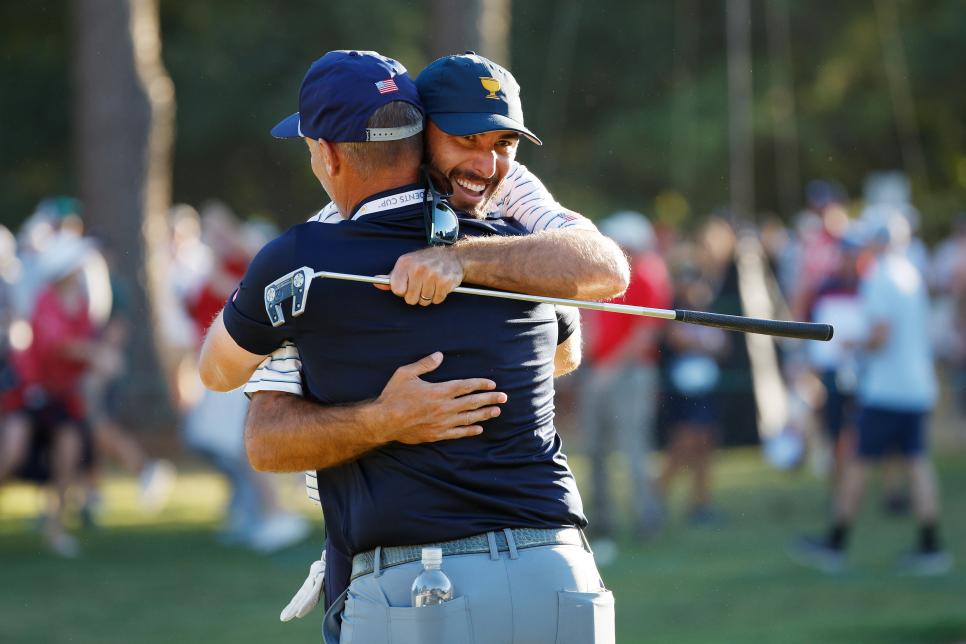There’s nothing casual about being a tour player’s full-time coach. Nor should there be. A top-level player is essentially a multi-million-dollar business, and having a dedicated team in place is the same as what you would see at a dynamic, growing company with the same kind of revenue.
Because of the stakes, there’s obviously an intense level of commitment and interaction. You’re spending hours and hours with a player both on the road and at home, and being in constant contact to share ideas, video or anything else required is the minimum standard for the job.
Are player-coach relationships actual friendships? They certainly can be. It’s easy to get close to people you spend all that time with. You’re going through challenging situations, and the honesty and vulnerability that goes with that is not an insignificant thing.
But it’s also very much a business. The player is paying for help to improve their performance. And the coach’s financial reward is usually tied to that performance. A coach has to be willing to be professional and say the things that need to be said, which can sometimes feel different than a conversation that happens in a pure friendship. In fact, being too much of a friend can cause a player-coach relationship to break up, if the player realizes there were times when they needed to hear a hard truth and instead got an answer that was more “comfortable.”
Max Homa celebrates with instructor Mark Blackburn after making his putt on the 18th green to win with teammate Billy Horschel 1 Up against Corey Conners of Canada and Taylor Pendrith of Canada and the International Team during Friday four-ball matches on day two of the 2022 Presidents Cup at Quail Hollow Country Club.
Jared C. Tilton
Does that mean I could work with a player I wouldn’t want to spend my free time with? After all, it’s business, right? My answer might be squishier than you’d expect. I’ve definitely coached players I didn’t really warm to personally. My focus is the same, and my strategy is always to look for the things I like in their makeup and their approach to the game. And part of my wiring as a coach is the belief that I can help somebody improve parts that go beyond just hitting the ball. And yes, this is a business. An extremely talented, driven player has tremendous upside. That’s just reality.
But that calculus has changed for me over the years. I’m very fortunate that all the players I work with are people I genuinely like to be around. To work with another player, that person has to fit in, so to speak, with the group. Not that they have to be buddy-buddy with every other player, but there can’t be friction and resentment. That’s too much of a distraction and too much to manage. I don’t have unlimited time and unlimited bandwidth, and I’m already away from my family more than I want to be. Adding a player who isn’t the right fit can pull you away from important work with other players and potentially damage those relationships.
RELATED: Mark Blackburn claims the top spot in our latest teacher ranking
Ironically, when I think about players who don’t get along, the friction that makes them dread getting paired with each other can also be an indicator that they could learn a lot by being around each other more. Each of them is almost always good at something very different than the other is, and they would benefit by picking up some of what the other player does well.
It’s a good lesson to take for your own play. The next time you’re starting to feel triggered about a player in your group, reframe how you think about and respond to it. Take the emotion out of it and examine what you can watch and potentially learn, like how somebody deals with a slow pace of play, or what they do in the strongest part of their game. Tiger Woods has always said practice rounds at Augusta National with legends like Jose Maria Olazabal were like four-hour master classes. Would it really matter if the two of them didn’t like the same kind of music, or had different views on politics? I think not.
This article was originally published on golfdigest.com

